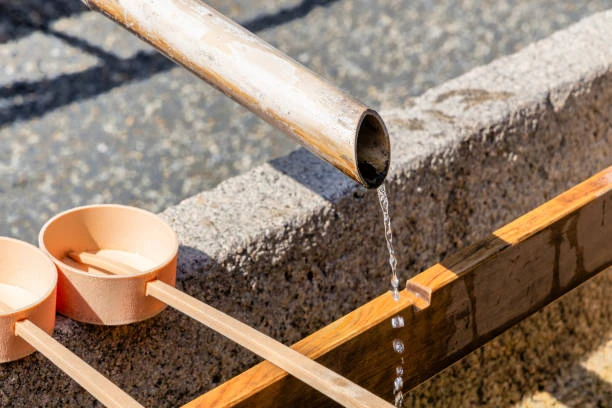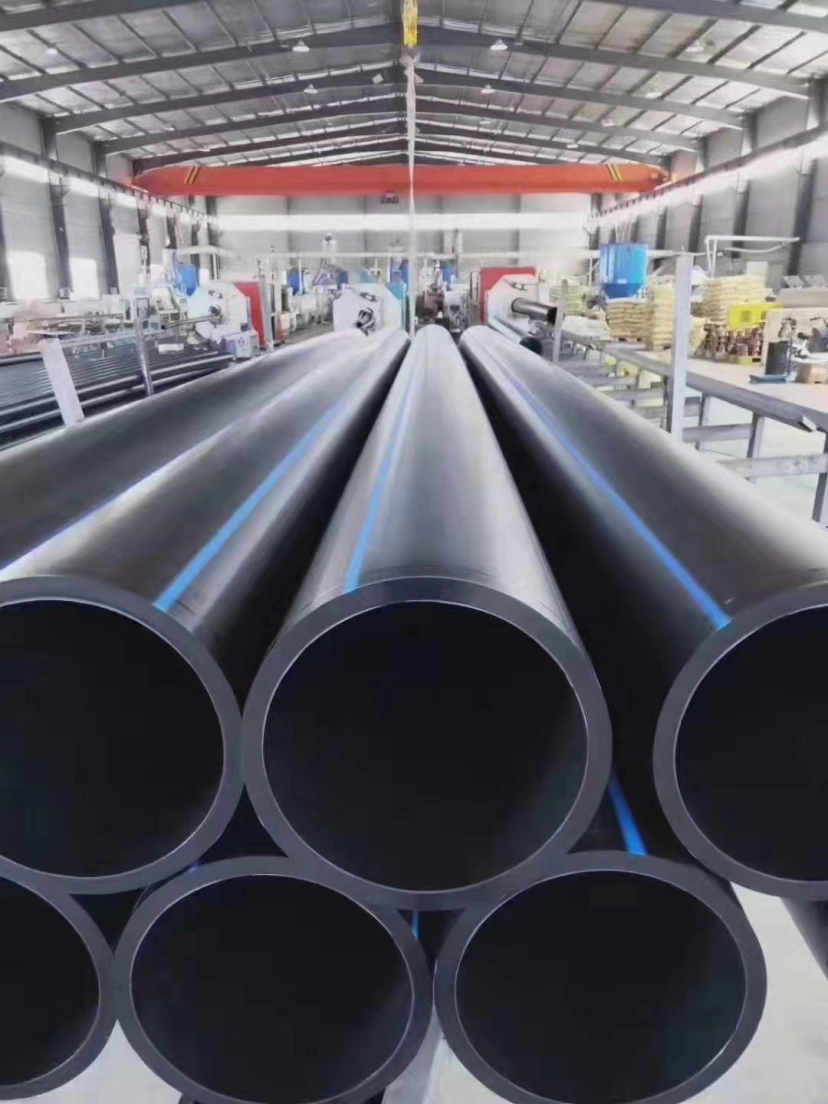Water pipe Ensuring the safety and integrity of water pipes is essential for any community. A safe, reliable water distribution system is the foundation of public health, providing clean drinking water to homes, businesses, and industries. For residents of the City of Belton, Texas, ensuring the quality and reliability of their water system is a top priority. Recently, the city has initiated a comprehensive testing program aimed at assessing and improving the safety of its community water pipes. The goal is to safeguard residents from potential hazards like water contamination, leaks, and bursts, all of which can disrupt daily life and pose serious health risks.
This article delves into the importance of water pipe safety, the testing process being used in Belton, and how these efforts benefit both residents and the local environment. Additionally, we’ll explore the broader significance of maintaining a robust water infrastructure and provide answers to some of the most common questions regarding water pipe safety.

Why Water Pipe Safety Matters
Water pipes are the unseen but crucial components that deliver clean water to homes and businesses. While we rarely think about the pipes that bring water to our taps, they are vital to our daily lives. Without properly functioning water pipes, communities can experience significant disruptions and even health risks.
1. Water pipe Preventing Contamination
One of the primary reasons for ensuring the safety of water pipes is to prevent contamination. Water pipes can sometimes become cracked, corroded, or damaged due to age or environmental factors. If the pipes are compromised, contaminants such as bacteria, chemicals, and rust can seep into the water supply, posing serious health risks to residents. Ensuring that the pipes are structurally sound is key to preventing these hazards.
2. Water pipe Reducing Water Loss
Leaks in water pipes not only waste water but also increase the operational costs of water systems. Leaks can occur in the most unexpected places, sometimes in the form of hidden underground cracks that are difficult to detect without the proper testing methods. By identifying these leaks early, cities can reduce water waste, preserve local water supplies, and save money.
3. Water pipe Avoiding Property Damage
Burst water pipes can cause significant property damage. When water pipes rupture, the water pressure behind them can send torrents of water into homes and buildings, flooding basements, damaging foundations, and compromising structural integrity. Proactive testing and maintenance can help detect weak spots in the system, potentially avoiding costly and destructive disasters.
4. Maintaining Water Pressure
Consistent water pressure is a key part of any community’s water system. Low water pressure can signal a problem in the pipes, such as clogs, leaks, or corrosion. High water pressure, on the other hand, can damage both the pipes and household plumbing systems. Water pipe testing can help maintain the proper pressure levels, ensuring that homes receive water at a safe, consistent flow.
The City of Belton’s Water Pipe Safety Testing Initiative
The City of Belton has launched a thorough initiative to assess the integrity and safety of its community water pipes. This initiative aims to identify weaknesses in the water distribution system and address them before they lead to costly repairs or water quality issues. The testing program focuses on both the structural condition of the pipes and the quality of the water passing through them.
Key Objectives of the Water Pipe Testing Program
1. Inspecting Water Pipe Integrity
Over time, the materials used in water pipes can degrade. Some older pipes may be more prone to corrosion or cracking, while newer pipes might face issues like improper installation or blockages. The testing program in Belton focuses on inspecting the entire water distribution system, from mains to service lines, to identify areas that may be at risk of failure.
2. Monitoring Water Quality
In addition to structural integrity, water quality is another key aspect of the testing program. Routine tests will be conducted to check for harmful chemicals, pathogens, or pollutants that could compromise public health. This includes testing for common water contaminants such as lead, chlorine, and bacteria.
3. Ensuring Consistent Water Pressure
Monitoring water pressure across the distribution network helps detect any irregularities. Low water pressure in one area of the system can indicate a leak or blockage, while unusually high pressure can be a sign of potential damage to the pipes. The city will be testing for pressure consistency to ensure that every resident receives a safe and reliable water supply.
4. Preventing Future Issues
Proactively testing and maintaining the water pipes allows the city to address problems before they escalate. For example, if a section of pipe is found to be vulnerable to future leaks or bursts, it can be replaced or reinforced before it fails, preventing major disruptions and ensuring the longevity of the infrastructure.
The Water Pipe Testing Process in Belton
The water pipe testing process in Belton is a comprehensive and systematic approach that involves a combination of visual inspections, advanced testing methods, and data analysis. Here’s a breakdown of the steps involved:
1. Visual Inspections and Surveys
The first step in the testing process involves visual inspections of the water pipes. City workers will examine above-ground portions of the water system, such as valves, meters, and hydrants, for signs of damage, corrosion, or wear. For underground pipes, the city will use a variety of methods to detect leaks, including infrared technology, acoustic sensors, and smart meters that can monitor the flow of water through the pipes.
2. Pressure and Flow Testing
Water pressure testing is essential for identifying potential problems with the distribution system. The city will test the pressure at different points in the network to ensure that it is within the appropriate range. In addition, flow rate testing helps assess whether the pipes are delivering the correct amount of water to meet the needs of residents and businesses.
3. Water Quality Testing
The city will regularly collect water samples from various points in the distribution system to test for common contaminants, including lead, bacteria, chlorine levels, and other pollutants. These tests ensure that the water supply is safe and compliant with environmental and health regulations.
4. Leak Detection
Leaks are one of the most common problems in older water pipe systems. To identify hidden leaks, the city will employ a combination of techniques, including acoustic leak detection, where microphones and sensors are used to listen for the sound of water escaping from pipes. Additionally, advanced leak-detection software can help pinpoint issues without the need for extensive excavation.
5. Data Analysis and Reporting
Once the testing is complete, the collected data will be analyzed to identify any potential weaknesses or areas of concern in the water system. Reports will be generated, outlining the results of the tests and offering recommendations for addressing any issues found. The city will use this data to prioritize repairs and maintenance tasks to ensure the safety and reliability of the water system.
The Benefits of Regular Water Pipe Testing
Regular testing and maintenance of water pipes offer several key benefits for residents and the community at large. These include:
1. Improved Public Health and Safety
By regularly testing for contaminants and monitoring the structural integrity of the pipes, the city ensures that the water supply remains clean, safe, and free of harmful substances. This helps prevent waterborne diseases and other health risks associated with poor-quality water.
2. Cost Savings
Proactively identifying and addressing issues with the water pipes can save money in the long term. Early detection of leaks or weaknesses in the system can prevent costly repairs, reduce water loss, and extend the lifespan of the pipes.
3. Enhanced Reliability
Regular testing helps identify areas of the system that are at risk of failure, allowing the city to take preventative action before problems occur. This reduces the likelihood of water outages, burst pipes, and other disruptions, ensuring that residents have access to reliable water at all times.
4. Environmental Protection
By reducing water wastage and preventing contamination, the city is also helping protect local water resources and the environment. Efficient water use is crucial, especially during periods of drought or water scarcity, making the conservation of water a priority.
5. Better Planning for Future Infrastructure Needs
Data from the water pipe testing initiative can help the city plan for future infrastructure upgrades. Whether it’s replacing aging pipes, upgrading water treatment facilities, or expanding the network to meet growing demand, regular testing provides the information needed to make informed decisions about infrastructure investments.
How Homeowners Can Help Maintain Water Pipe Safety
While the city plays a major role in maintaining the water distribution system, homeowners also have a part to play in ensuring the safety and reliability of the water pipes. Here are a few tips for homeowners:
1. Maintain Your Household Plumbing
Regularly inspect household plumbing for leaks, corrosion, and signs of wear. Ensure that faucets, toilets, and pipes are in good condition to prevent water waste and damage to your property.
2. Be Mindful of Water Usage
Reducing water waste is an important way to support the local water system. Consider installing water-efficient appliances, fixing leaks promptly, and using water-saving habits like turning off the tap while brushing your teeth.
3. Report Issues Promptly
If you notice any issues with your water supply, such as discoloration, unusual odors, or low pressure, contact the city’s water department immediately. Early reporting helps resolve issues before they become major problems.
Conclusion
The City of Belton’s water pipe safety testing program is a critical step in ensuring the long-term reliability and safety of the community’s water supply. By proactively testing the integrity of water pipes, monitoring water quality, and addressing potential issues before they become major problems, the city is safeguarding public health, saving money, and ensuring that residents have access to clean, reliable water. Regular water pipe testing and maintenance are key to preventing disruptions, protecting the environment, and maintaining the highest standards of water safety.
Frequently Asked Questions (FAQs)
1. Why is the City of Belton testing its water pipes?
The city is testing its water pipes to ensure they are safe, secure, and free from leaks, contamination, and other issues that could affect the quality and reliability of the water supply.
2. How often should water pipes be tested?
Water pipes should be tested regularly, typically every few years or as part of routine maintenance. However, testing may be done more frequently if there are concerns such as unusual water quality or pressure drops.
3. Can I test the water pipes in my home?
While homeowners can inspect plumbing for visible issues, water Pipe quality tests and structural inspections should be conducted by professionals to ensure accurate results.
4. What are the signs that a water pipe might be damaged?
Signs of damaged water pipes include low water pressure, discolored water, water stains on walls or ceilings, and the sound of running water when no faucets are on.
5. How can I report a water pipe issue in Belton?
Residents can contact the City of Belton’s public works or water department to report water pipe issues, such as leaks, poor water quality, or low pressure.


















